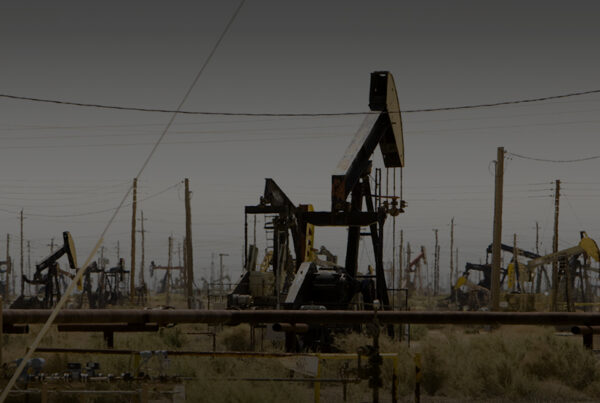A practical analysis of geopolitical risks for the global Oil and Gas industry in the context of the unfolding resource war, US-China strategic competition and logistics’ disruptions dilemma.
The events of the second half of 2023 and January 2024 highlighted unfolding transformations and escalating tension in the world, which intensified economic dichotomy of resilience and vulnerability, particularly in the global energy sector. Strategic maneuvers of global powers, environmental policy changes and spending patterns in various countries revealed an apparent correlation of these developments with market trends in the oil and gas industry.
Such correlation has been explored through a specifically designed analytical framework, which focused on geopolitical and practical factors that affect the energy sector most. The findings confirmed the industry’s crucial role in global economy and the importance of maintaining the delicate balance between securing energy supplies and adopting sustainable practices.
The following are key insights into the current state and future prospects of the global oil and gas industry:
- Recent regional conflicts (e.g., in the Persian Gulf, Caspian Sea basin, Central Asia, western Balkans, and Ukraine) possess unique local dynamics but are interconnected parts of a global geopolitical system, predominantly driven by competition for control over essential natural resources, termed as “resource wars.” Since mid-20th century, international conflicts have increasingly originated from the necessity to access vital resources (energy, rare earth metals, minerals, water), which are all essential for functioning of modern industrial societies.
- Conflicts like those in Israel and Ukraine, while being regional, are manifestations of a broader geopolitical struggle between two major blocs: the West (led by the U.S. and its European allies) and the East (led by the China-Russia-Iran triumvirate), each vying for influence and control over global resources and economic dominance.
How can we help?
Intelligence Solutions
The combination of business, market and strategic intelligence ensures result-driven outcomes for our customers.
Risk management
Risk management through the responsibility of taking risk ownership while ensuring safety and security
Strategic Advisory
The first step in protecting your organization, assets and people is the identification of the risks and threats.
- There are two sets of factors affecting the global oil and gas industry – geopolitical and practical: Geopolitical dynamics, strategic alliances, and control over resources and transportation routes significantly influence the industry while the industry’s operational integrity is threatened by logistical, technological, regulatory, and supply disruptions. Both types of factors have potential impact on global oil and gas flow, prices, and energy security.
- Political developments, such as EU and U.S. elections, significantly influence the oil and gas industry shaping policies, market dynamics, investment climates, and international trade partnerships.
- The strategic engagements of Russia and China in Africa, particularly in resource-rich nations, have major implications for the oil and gas industry, affecting production, trade, regional security, and the global balance of power. Both nations are intensifying their influence in Africa through military, economic, and political engagements, aiming to secure access to natural resources, expand their geopolitical influence, and counter Western presence.
- The Arctic region, poised as a new frontier for competition over untapped resources and transportation routes, holds long-term potential for market expansion, despite minimal immediate impacts on the global oil and gas industry.
- The global oil and gas industry’s reliance on vulnerable infrastructure and strategic chokepoints exposes it to significant security risks, including terrorism, sabotage, and geopolitical conflicts.
The analysis allowed to compile a 2024 outlook for the oil and gas industry:
- The industry is expected to remain relatively stable through unfolding geopolitical tensions, market transitions, and environmental challenges, with a gradual shift towards cleaner, sustainable energy sources.
- The strategic competition among global powers, particularly between the Western bloc and the China-Russia-Iran triumvirate, will continue to influence the industry, potentially causing fluctuations in oil and gas flow in sensitive regions like MENA, Central Africa, Sahel, and Latin America.
- Conflicts and competitions for strategic assets will persist, with natural resource control remaining a central aspect of global geopolitical confrontations, potentially overshadowing ethnic, religious, and ideological motives.
- Political realignments and shifts in traditional trade routes, especially in Latin America and the Arctic, might lead to moderate market disruptions, with the industry expected to adjust and mitigate major impacts through strategic alignments and market mechanisms.
- Despite the risks of infrastructure sabotage and geopolitical tensions, particularly in regions like Russia and Central Asia, the industry’s infrastructure resilience is expected to uphold market stability, with mutual dependencies playing a key role.
- The Arctic will continue to attract attention as a potential resource-rich region and transportation corridor, but significant developments impacting the global oil and gas industry are unlikely to materialize in the short term.
- The industry will face increased risks associated with technological breakdowns, environmental policy changes, and social unrest, which could lead to temporary production disruptions and necessitate a focus on sustainability and social responsibility.
- The possibility of ‘black swan’ events, ‘grey rhino’ threats, and ‘pink flamingo’ challenges will necessitate robust contingency planning and strategic resilience to mitigate their potential impact on global supply chains and market dynamics.
- The potential for strategic resource seizures, especially in resource-rich regions, will remain a concern, with geopolitical conflicts possibly escalating into proxy wars, impacting global oil and gas supply and market stability.
- The industry’s ongoing transition towards cleaner energy sources is expected to continue, driven by policy changes, technological advancements, and evolving market demands, influencing traditional oil and gas markets and opening avenues for alternative energy investments.

ARTICLE | 51 PAGES






